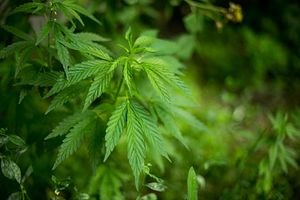Selling, buying, and using drugs are all capital offenses in Taiwan, punishable by death, but such sentences are rare. For many years, most of the guilty have been thrown behind bars and later released on probation for good behavior in jail. And for those selling huge quantities for profit, life sentences are the norm.
So it should have been no surprise for Tyrel Martin Marhanka, a U.S. citizen, when he was handed a four-year sentence in a courtroom in Changhua on Thursday, after being convicted for possession of marijuana.
Marijuana is a second-degree illegal drug in Taiwan, along with poppy, amphetamine, and pethidine. First-degree drugs include heroin, morphine, opium, and cocaine.
Upon hearing his sentence through an interpreter, Marhanka appeared incredulous and was heard repeating, “Four years?” – to which the interpreter answered that he could appeal the sentence if he wished to. Marhanka said he didn’t want to, while becoming more and more agitated as the severity of his crime seemed to sink in.
All of a sudden, he pulled out two sharp objects and shouted, “I don’t want to live anymore!” before proceeding to stab himself in the neck. The metal objects were later identified by court officials as the two blades of a pair of scissors Marhanka had smuggled into the courthouse, although it was still unclear why they went undiscovered. Wang Yi-min, the presiding judge who sentenced Marhanka, later expressed his regret at the incident and promised that a new X-ray machine would be installed for mandatory screenings before people entered the courthouse.
Shortly after Marhanka was rushed to the hospital in an ambulance, he was pronounced dead due to an immense loss of blood.
Marhanka was arrested last April for growing opium poppies and cannabis in Changhua County, where he lived with his Taiwanese wife and two children. According to the China Post, Marhanka had claimed he was growing the plants for his own usage and not for profit. He had begun growing poppies in early 2015, having smuggled some 800 opium poppy seeds back from the United States in 2011.
Taiwan began its crackdown on drug smuggling and usage in the 1990s, when the government vowed to weed out drug traffickers by throwing them all into jail. Life sentences were automatic, but in more recent years, the law was amended to grant shorter sentences to defendants that decided to plead guilty in court.

































